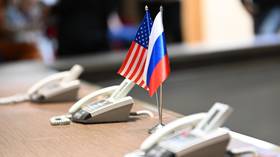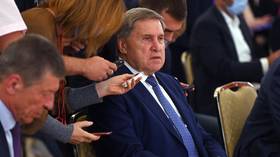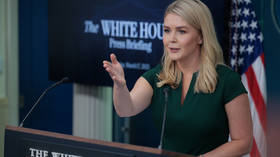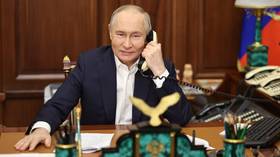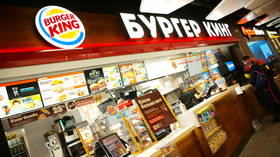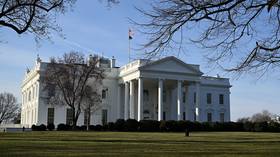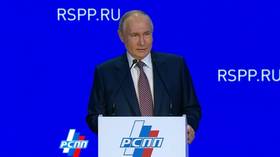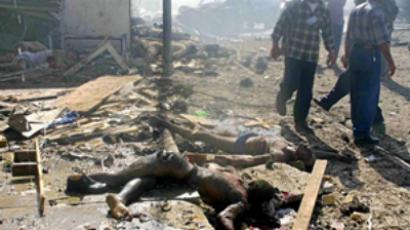Iraqi Christians became refugees in their own country
One of the world’s oldest Christian communities, in the northern Iraqi city of Mosul, is struggling to survive after a string of murders over the past month that has forced families to flee.
Relentless sectarian violence that plagues the Iraqi city of Mosul, on the border between Kurdistan and the Nenovah province, has driven tens of thousands of Christians from the city since the US-led invasion, something Father Mazin Ishou Mitoka knows only too well. In late February, tragedy struck his family.
“I received news from my cousin that gunmen had broken into my home and killed my father and two of my brothers,” remembered the catholic priest. “I was in church and the news struck me like a bolt of lightning,” he said.
The gunmen claimed they needed information and wanted to see identification, but the real purpose of the visit was to commit murder – part of a wave of killings in Mosul directed at the Christian population.
“The whole event did not take more than three minutes. The women and children remained inside the house; they stayed in a separate room. After a while they heard gunshots and as a result they ran out and my mother saw my father and my younger brother covered in blood. So she got out of the house and onto the street without seeing my older brother and started to scream from the shock,” Father Mazin Ishou Mitoka told RT
To escape the violence, Father Mitoka along with some 250 families, moved to Karkosh, the city with the largest concentration of Christians in Iraq.
The Director of High Committee for the Affairs of Christians in Karkosh, Bashar Gargis Habash, explained that “The displacement of Christians [in Iraq] started in 2005 throughout Iraq and the media has talked about it clearly and openly, even if part of the media has tried to lessen the importance of it. 3,000 families have arrived in Karkosh since 2005 – some10,000 people. It is not a simple issue. The international community has knowledge of this, but there is silence and a cover-up, or they do not have the guts to take a specific stand.”
The effect of the violence towards Christians is felt hard in Karkosh, with signs condemning the incidents in Mosul. Around town you will find several churches with people practicing their faith freely, but to allow this to happen, the city has taken some extreme measures.
The town of Karkosh is located within a disputed area, just 30 kilometers from Mosul, and for protection the people in the town have armed themselves and created a perimeter around the city. From a political standpoint, some people are saying that what really needs to happen to make headway here is for the government to enforce the Iraqi constitution.
“We see no reason why there should be any further delay in the implementation of article 140,” announced Massour Barazani , Intelligence and Security Chief for Kurdistan region of Iraq. “I think when that happens even those other nationalities that are living in those areas will have a better chance of having better security in those areas, because right now it is like a grey area. No one has full responsibility of doing what is best for the people. Once the decision is made and the fate of these territories is clear, then I think there is a clear responsibility for serving those people and protecting those people,” he considered.
But for those closest to the situation, the problem goes beyond the political realm and deals more with treating all Iraqi citizens equally.
Catholic priest Father Mazin Ishou Mitoka acknowledged that “Moving out of Mosul is not a solution and they must feel that there is stability in the country, they must feel there is unity. There should be a vision about people’s rights; this can be done by people in the government or outside groups who can influence events in the country,” he maintains.
Whatever their origin, the groups must be able work together to find a core solution so the killing in Mosul will stop.



